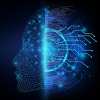
Early on, people feared Artificial Intelligence would mean job loss. Popular entertainment like “HER” and “Black Mirror” helped foster these fears. But critics said it was all unfounded, and that AI would displace jobs rather than eliminate them. They believed people would be re-trained to operate the machines that would do the heavy lifting for them.
Proponents said AI would provide more opportunities, and help people at the small cost of simple adaptation, similar to what occurred in the digital revolution. They said we had nothing to fear because AI would never have the social, emotional and higher cognitive abilities of humans and that we should learn skills that AI could not replicate.
Well, those arguments may be aging. AI is becoming increasingly realistic. As some predicted, chat bots are so advanced that they now serve as genuine companions for people to ease the loneliness so many face nowadays. Many jobs we thought safe are being turned over to AI. Microsoft cut dozens of staffers from its MSN news service, for example, replacing human editors with artificial intelligence. Large businesses have even been experimenting with AI for hiring, typically an HR function.
If the predictions are true and the global health crisis is here for a while, interacting with machines might be our safest option. AI would become necessary for a world where social distancing is a requirement.
This is not meant to create unnecessary and premature panic. There are many things AI simply can’t do, at least not yet. Like humans, technology isn’t perfect. It can fail us, so we would be mindful to not put all our eggs in one basket. Technology does prompt us to consider how we frame the questions we ask ourselves about AI. It’s perhaps no longer if they can (or will be able to) do the things that are innately human, but how they do them. You can teach a monkey to dance and a parrot to talk, but you can’t change what it is. A chat bot can keep a conversation going and ask you about all your favourite things to get to know you better.
But humans can’t connect with machines the way we do with other humans on basic experiences like neighbours in a locale or alumni who went to the same school. That kind of connection is social, emotional and nuanced. Relating to AI in the same way doesn’t seem to be possible at this stage of the technology. So while AI may be doing very human jobs to transform daily functions and daily life, it remains a tool at this stage, and not a BFF.
